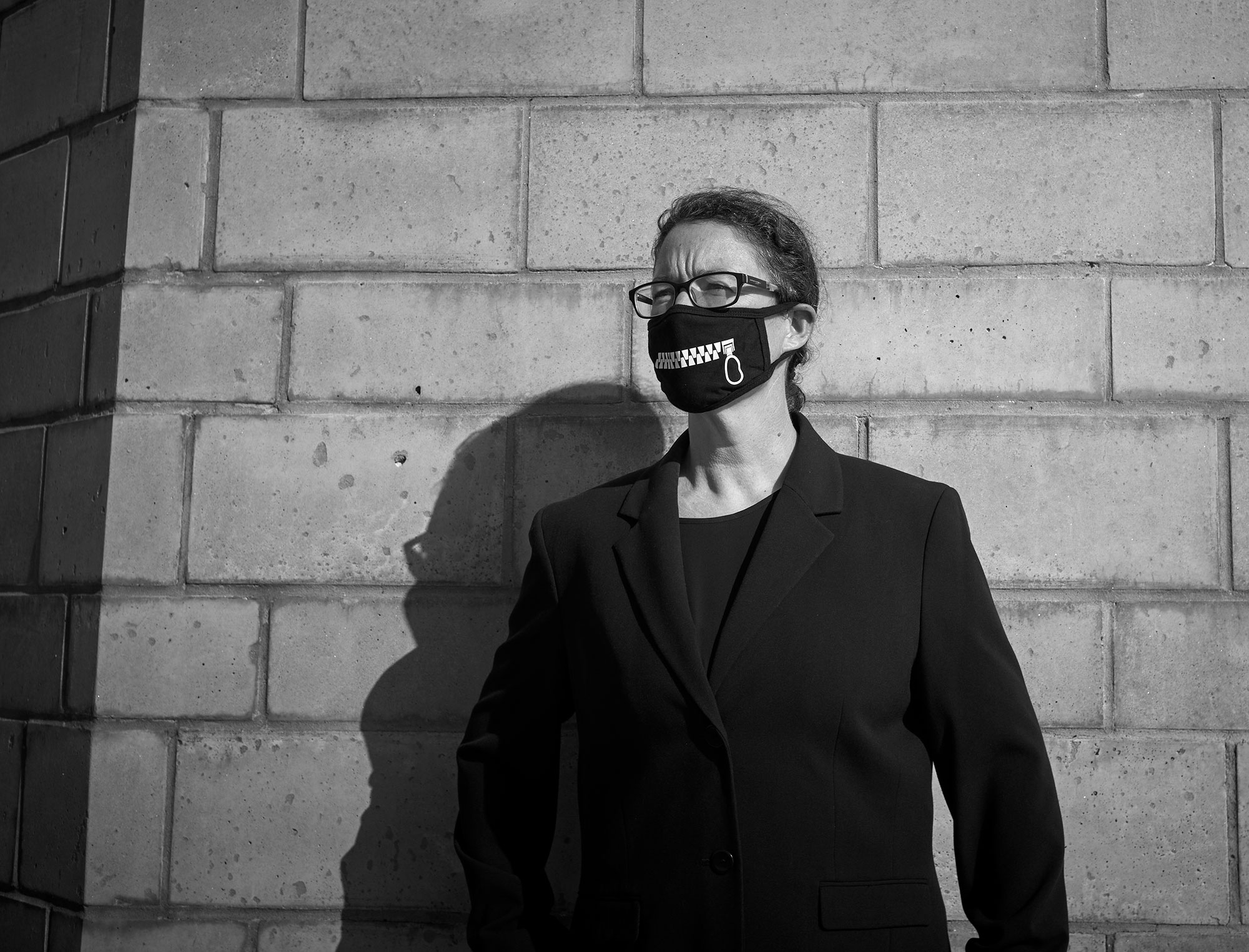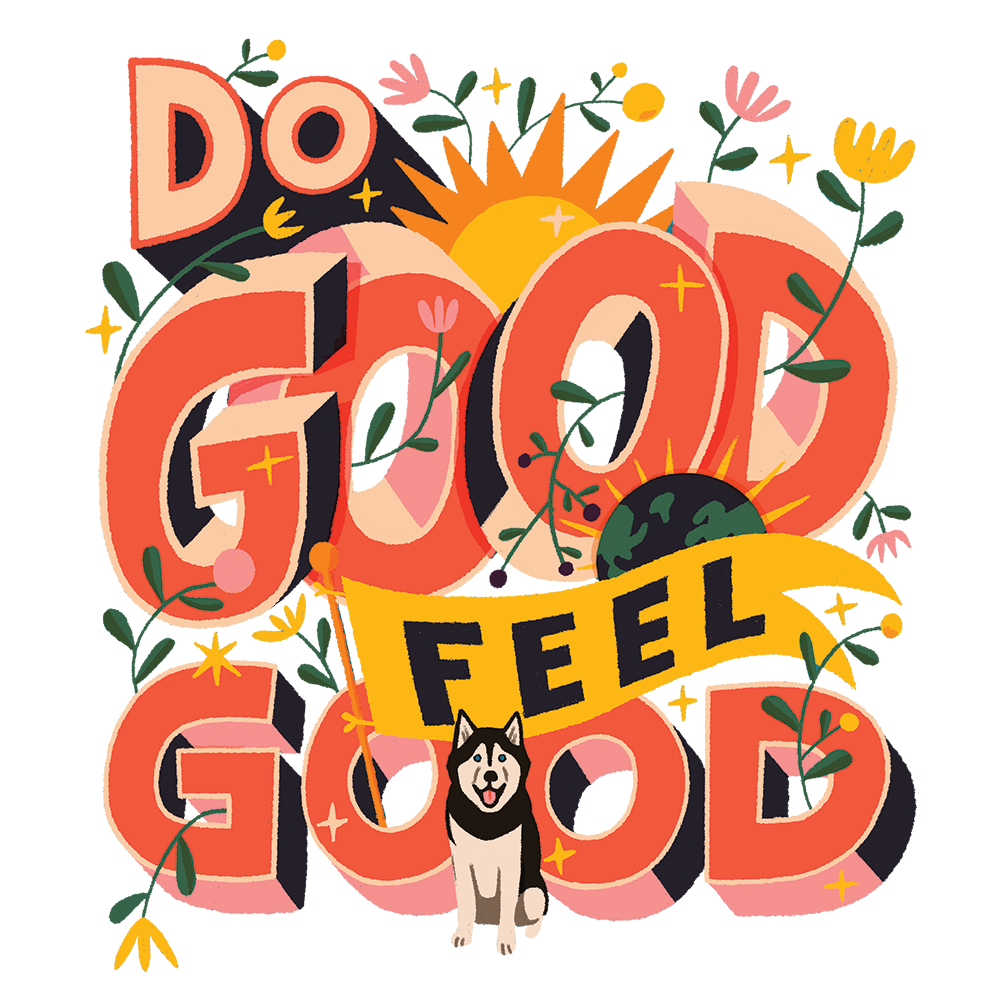| Do Good, Feel Good |

Stoking Our Apocalyptic Fantasies
By Lisa Stiepock
Photo by Peter Morenus
“They have popped in 2020 like crazy,” says Pam Bedore of the apocalyptic and dystopian books that are one of her specialty areas as a professor of literature at UConn Avery Point.
Why, when the world itself feels downright disastrous, do people want to immerse themselves in the culture of Armageddon?
“It’s a way to process that anxiety,” says Bedore. Beyond that, she says, it asks something of readers. “Dystopian literature is activist at heart — it asks readers to act,” says the teacher of a popular utopia/dystopia course, who claims dystopia is the more optimistic genre. “It is usually worse than reality. It tells people you gotta go do stuff to avoid this.” There’s a catharsis element, too. “You identify with great characters — and some of them survive.”
Here’s Bedore’s list of “great pandemic reads — if you’re into dystopia and apocalypse!”
Louise Erdrich. Future Home of the Living God. 2017. This eerie novel that’s hard to classify explores a very near future plagued by environmental crisis and human devolution. Moving and funny, it draws together elements from political thriller and speculative fiction. It also contains my all-time favorite final chapter.
Emily St. John Mandel. Station Eleven. 2014. Set 20 years after a pandemic has killed most of the Earth’s population, this elegant novel follows a troupe of Shakespearean actors and musicians as they face the challenges of a postapocalyptic world shot through with danger and beauty.
Cory Doctorow. Little Brother. 2008. In this YA novel, Canadian writer and activist Doctorow brings Orwell’s Big Brother into the 21st century. This novel includes lots of accurate information about hacktivism even as it tells a great story about teen rebels.
N.K. Jemisin. The Fifth Season. 2015. This gorgeous fantasy novel follows three powerful female orogenes (who can control energy) in the days leading up to what promises to be the worst “fifth season” (season with no growth) in history. An exploration of environmentalism, inequities of many kinds, and hope.
Margaret Atwood. Oryx and Crake. 2003. At once satirical, terrifying, and thought-provoking, this novel tells the story of the human race’s final days — and the days right after. It’s part of a trilogy that suggests the human race may be more resilient than we think, even in the face of a bioterrorist attack.
M.T. Anderson. Feed. 2002. Narrated by a teenager whose life is consumed by “the feed” (a very realistic extension of our own cyber-practices), this novel is a mix of satire and poignant scenes about coming of age in a world without a future, where Aldous Huxley’s dark anxiety about the dangers of pleasure have come to fruition.
Octavia Butler. Parable of the Sower. 1993. California is on fire, there’s a white supremacist in the White House, and wealth disparity has hit new heights. The story of Lauren Oya Olamina, a young hyperempath, includes a dark exploration of modern- day slavery but also provides hope through new spiritual practices and philosophies.
Stephen King. The Stand. 1978. This thousand-page doorstop may remain my all-time favorite pandemic novel, and it was the first I ever read. This mix of science and fantasy follows the few earthly survivors of the superflu Captain Trips. It’s dated, but still compelling.
Ursula K. Le Guin. The Dispossessed. 1974. Do you love physics and dystopia? No matter. This classic “ambiguous utopia” tells the compelling story of Shevek, my all-time favorite fictional physicist, who moves between a consumption-oriented planet and its stark yet utopian moon.
George Orwell. Nineteen Eighty-Four. 1949. A great companion to Huxley, this classic dystopia examines totalitarianism, surveillance, and disinformation through the ever-compelling Winston Smith.
Aldous Huxley. Brave New World. 1932. This is a must-read for anyone interested in dystopia. Exploring emerging technologies, such as genetic engineering and new pharmaceuticals, this novel posits a terrifying world in which everyone is carefully bred for their position and control is maintained through pleasure.

We are all in need of a little happiness and a little inspiration lately, so we’ve devoted this issue of the magazine to stories of just a few of the many UConn faculty, staff, students, and alumni who spend their days doing good in the world, making it a better place for all of us.

Leave a Reply